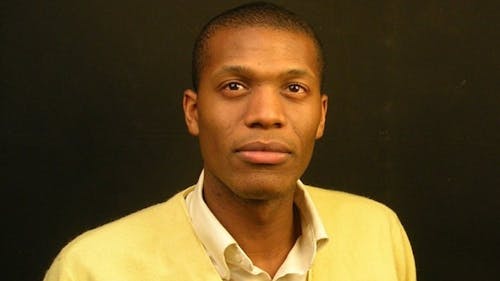Rutgers professor wins award from Russell Sage Foundation, Gates Foundation

Assistant Professor Jermaine Toney was selected to receive the Early Career Award from the Russell Sage Foundation and the Bill and Melinda Gates Foundation for his work on “The Effects of Extended Family Wealth on Income Mobility.”
In the fall of 2019, Toney was hired by the Rutgers Edward J. Bloustein School of Planning and Public Policy. Associate Dean for Research Clinton J. Andrews was part of the selection committee that hired Toney and said he was impressed by Toney’s resume, which included being a National Science Foundation Postdoctoral Research Fellow in the Dyson School of Applied Economics and Management at Cornell University and a research fellow with the Institute for Behavioral and Household Finance at Cornell University.
“I am a nationally recognized longitudinal data researcher on the interaction between household finance, household dynamics and intergroup inequality,” Toney said. “I knew that a new project on the relations among previous generation’s wealth and younger cohort’s income would add breadth to my current work.”
Toney was 1 of 18 award recipients of the Pipeline Grants Competition, which is sponsored by a partnership between the Russell Sage Foundation and the Economic Mobility and Opportunity program at the Bill and Melinda Gates Foundation. Toney said the program closely aligned with his work, which inspired him to apply.
“From the moment I saw the call for proposals I knew that my research work and proposed project would be a good fit with the research themes championed by Russell Sage Foundation and Bill and Melinda Gates Foundation,” Toney said.
He said the Early Career Award began to promote racial, ethnic, gender, disciplinary, institutional and geographic diversity in the social sciences by financially supporting scholars at the beginning of their careers.
Some of the other 18 recipient proposals include issues of race relations and immigration problems. Toney’s topic is “a study of the role parental wealth plays in income mobility.”
“Extended family wealth can act as a form of security for younger cohorts (i.e. smooth income during employment gaps) and form as a basis of investment (e.g. purchase a college education, facilitate transitions to asset ownership),” Toney said. “In other words, income security is not confined to individual efforts alone, although conventional economic wisdom may have us believe otherwise. I posit that income prospects may also be shaped by extended family wealth.”
Toney said the topic of economic insecurity has become even more relevant due to the coronavirus disease (COVID-19) pandemic.
“The U.S. economy is rapidly collapsing in the face of COVID-19 issues, with people losing loved ones, jobs, incomes and customers,” he said.
Toney said faculty in the Bloustein School helped support him during the process of preparing his proposal. He said Andrews, Professor William Rodgers and Associate Professor Michael Smart all took their time to provide feedback.
“I was excited to see that he had identified the opportunity and also to see how he sort of shaped his proposal in conversation with me and a few other senior faculty,” Andrews said.
Associate Dean of Faculty Stuart Shapiro was the chair of the search committee that brought in Toney for a position in the Bloustein School.
“We’re very excited about this award, and it’s certainly a signal of a promising career,” Shapiro said.
With this award, Toney will be matched with a mentor for support and plans to hire a research assistant to help him with his work. He said the award also provides more national visibility.
Andrews said Toney’s work can inspire other faculty members to apply for grants and awards.
“By winning one of these grants, he's shown us that it's possible, and it'd be a great thing to point other faculty members to it,” Andrews said.



